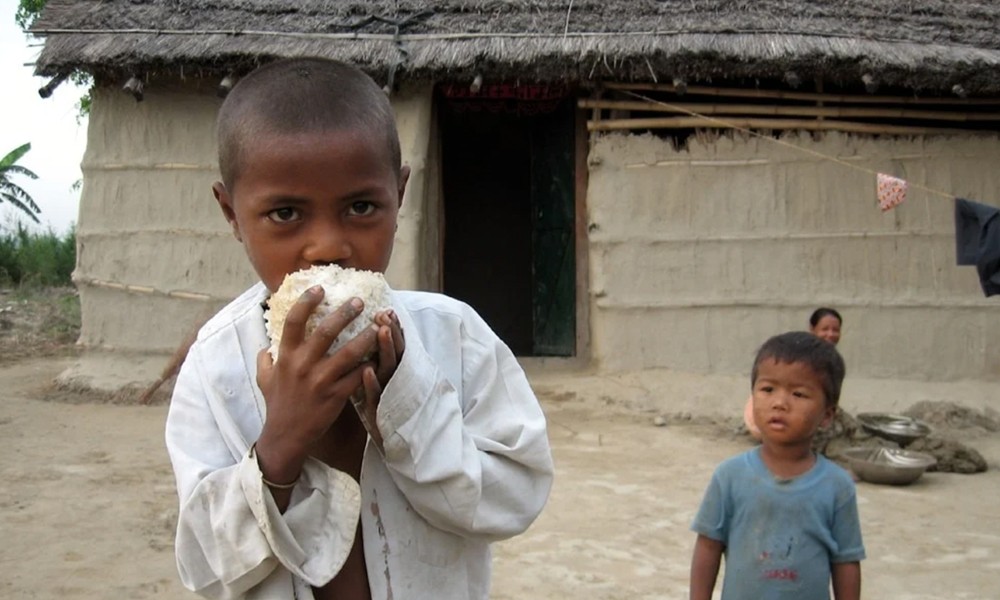I was recently travelling through Kailali and Bardiya districts to conduct a research study on the interrelationship between the traditional occupations and mother tongues of the indigenous Raji community. As part of my study, I interacted with Raji people in Tikapur and Bhajani villages of Kailali, as well as in Sano Shree Taal of Bardiya. During these community interactions, I learned how Raji people -- mostly women -- have been undergoing sterilization surgeries as part of an annual government program.
Raji is one of the 10 indigenous groups classified as 'endangered' by the Government of Nepal. They live mostly in rural villages. They are economically vulnerable and socio-politically backward. Classification of Raji as an 'endangered' indigenous group means the government wants to protect them from becoming extinct. However, they are also one of the target groups of a family planning policy. Protecting Raji as 'endangered' is incongruous with targeting them for a family planning scheme. It is regrettable that people from this endangered indigenous community are being encouraged to undergo sterilization surgeries. They are already a minority group; and encouraging them to control their population makes no sense. It is a flawed policy, and it needs to change.
Not every single policy can be socially acceptable in every socio-cultural context. A policy targeting communities with large populations might be inappropriate for endangered groups, who are already facing existential threats. Therefore, endangered Raji people need to be encouraged to have more children instead of signing up for family planning services for population control.
Not every single policy can be socially acceptable in every socio-cultural context. A policy targeting communities with large populations might be inappropriate for endangered groups, who are already facing existential threats. Therefore, endangered Raji people need to be encouraged to have more children instead of signing up for family planning services for population control. For this, the existing family planning policy needs to be reformed. It is equally important to remove legal and policy hurdles in protecting Raji from becoming extinct. For example, polygamy has been criminalized in Nepal, which makes sense in the national context. But it also prevents endangered indigenous peoples such as Raji from having multiple spouses and reproducing more babies -- a necessity for their population growth. In many indigenous communities, polygamy has always been a culturally accepted social custom. But the modern polygamy law is making it difficult for them to practice this custom.
Some countries have had two parallel systems. They have enacted different laws and policies for different ethnic communities depending on their socio-cultural uniqueness and needs. But in Nepal, there have always been one-size-fits-all laws and policies. It is akin to reducing the size of one's feet so that the shoes fit them, rather than designing the shoes as per the actual size of her feet. This is why customary laws and institutions of many indigenous communities are considered 'illegal' in Nepal.
Raji people need to reproduce more babies. It is a necessity for their population growth, and for their identity. It might also require them to have multiple spouses. But the laws of the land have made it difficult for this 'endangered' community to have more children.
Raji people need to reproduce more babies. It is a necessity for their population growth, and for their identity. It might also require them to have multiple spouses. But the laws of the land have made it difficult for this 'endangered' community to have more children. And there is social stigma attached to polygamy, and to a high number of babies. Many Raji people have been ridiculed for having more babies, especially when they visit local government offices for their social security allowances. People from other communities often humiliate them by saying that 'they have more children for the sake of getting more social security allowance." Therefore, young Raji couples have now limited themselves to just one or two children. They say the rising cost of living has also forced them to have fewer children.
Raji people have also faced displacement in the name of nature and wildlife conservation. Many Raji families have been uprooted from their ancestral habitat when Bardiya National Park was created. Billions of rupees have been spent for wildlife conservation. But very little is spent to protect endangered indigenous communities like Raji. They get social security allowance from the government. But nothing else.
If 'endangered' Raji people are being encouraged to control their population, it is anyone's guess that the government is delivering family planning services for other nine 'endangered' indigenous groups as well. Controlling the populations of 'endangered' minority groups is a grave mistake. It is high time the government introduced a policy encouraging 'endangered' minority groups to have more children.
(Nishnu Thing is a researcher at the language commission. This is an unauthorised translation of a shorter version of his article originally published in Kantipur daily.)







